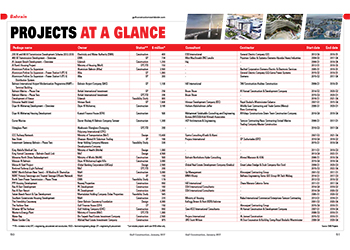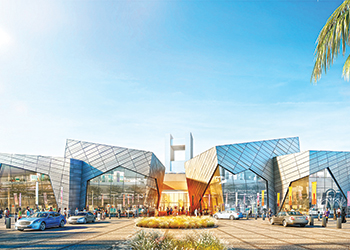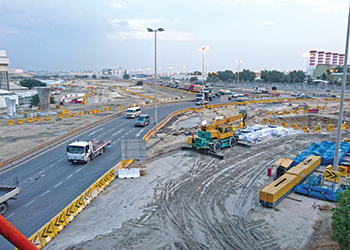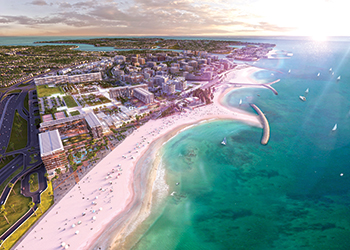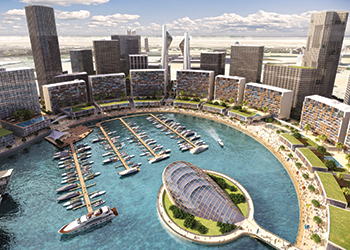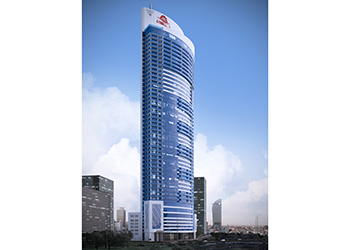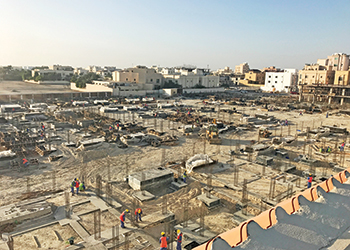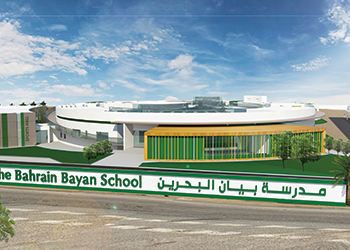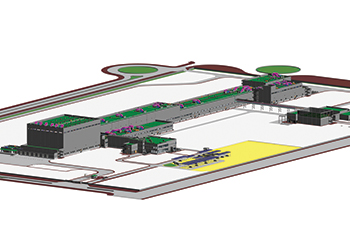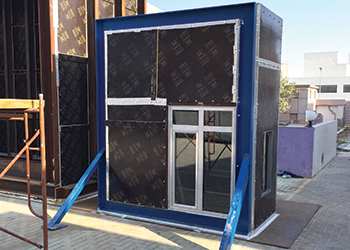
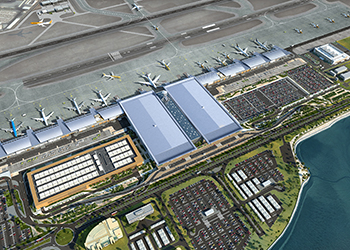 Bahrain Airport ... an overview.
Bahrain Airport ... an overview.
A new terminal – four times the size of the existing one and with almost twice its capacity – is set to soon take shape at Bahrain International Airport (BIA), as part of a modernisation project that aims to bring in a new-age travel experience including self-serving kiosks and quick baggage clearance at this pioneering aviation hub.
Costing well over $1 billion, BIA’s Airport Modernisation Programme (AMP) is being carried out by Mumtalakat Holding’s subsidiary Bahrain Airport Company (BAC), which operates and manages the airport in partnership with the Ministry of Transport.
“The AMP is set to upgrade Bahrain International Airport’s infrastructure and services and increase passenger and cargo handling capacity. By improving the travel experience and creating more business opportunities through new routes and new airlines, the AMP will boost the airport’s profitability and stimulate the growth of the aviation sector and overall business scene in Bahrain,” Mohamed Al Binfalah, CEO of BAC, tells Gulf Construction.
BIA was the first airport in the Gulf region when it was established 90 years ago in 1927, he says. The last major upgrade of the facility was completed in 1994.
By 2019, a new state-of-the-art passenger terminal building will increase the airport’s annual capacity to 14 million passengers, expand its services and commercial offering and optimise its operational efficiency. In 2015, BIA handled nearly nine million passengers.
The new terminal will be able to handle 130,000 air traffic movement per annum, and 4,700 bags per hour, with automated early bag storage facility for 600 bags.
The project is being executed in line with the highest standards of safety, security, technology and environmental regulations, he says.
“Through the design of the new terminal, we have ensured to sustain our efficiency, ease and flexibility of passenger movement and superior levels of service. On an operational level, we plan to continue to invest in our infrastructure, facilities and services to sustain BIA’s reputation for superior customer service, speed and operational efficiency – BIA’s key differentiators vis-a-vis its regional counterparts,” says Al Binfalah.
The AMP’s cost of BD380 million ($1.1 billion) is jointly funded by the GCC Development Fund and the Government of Bahrain.
The programme marked major milestones in its progress when five key contracts were signed early last year – including the main contract, which went to a joint venture of Arabtec from the UAE and TAV Construction of Turkey. Other contracts were awarded to Vanderlande of the Netherlands for the baggage handling system, L3 Communications of the US for security equipment, CIMC of China for the passenger loading bridges, and Kone of Finland for horizontal and vertical transportation systems.
Other key players on the project include Hill International as the project management consultant, and Aéroport de Paris Ingérierie (ADPi) as design and engineering consultant.
Work was launched on site with the first enabling works package (1A) which was awarded to Cybroc in February 2015 and was completed in February 2016; while the second enabling works package (1B) went to GP Zachariades, which completed it in August 2016. Keller undertook the piling works.
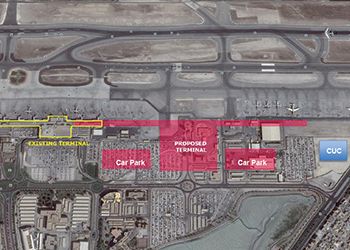 |
The Airport Modernisation Programme ... under way. |
Two phases
The AMP is being implemented in two phases. Phase One, which is well in progress, entails enhancement and maintenance work at the existing terminal including the upgrade of air bridges, refurbishment of washrooms, arrival concourse and replacement of carpets. Phase Two will see a new passenger terminal built.
The new 207,000-sq-m terminal will feature a 4,870-sq-m departures hall (triple the size of the current area), check-in halls totalling 8,520 sq m, 108 check-in counters, 9,000 sq m of retail area, 5,570 sq m dedicated to multiple lounges, two business class check-in lounges, 36 passport control offices, eight e-gates, eight baggage reclaim belts spread over 12,000 sq m, a 6,600-sq-m arrivals hall, and 1,000 sq m of duty free at arrivals. It also comprises a new 50-room hotel in the departure area, and a new multi-level car park.
The new airport is targeting Leed (Leadership in Energy and Environmental Design) Gold for sustainable green building.
Some of the advanced features incorporated will include intuitive passenger flow and efficient airport operation, the latest safety and security systems, and new mechanical and electrical systems.
Among such systems, global air transport IT specialist Sita will install self-service check-in kiosks at BIA – four in the economy area and two in the first class and business areas – allowing passengers to avoid queues at traditional check-ins.
“This project is the first step to implementing the Iata Fast Travel Initiative, which will enhance the passenger experience significantly at the airport,” says Al Binfalah.
The state-of-the-art automated baggage sorting system, which will include eight reclaim belts, to be installed by Vanderlande under a BD11.7-million ($31 million) contract, is to be completed by Q2 2019 to coincide with the opening of Phase One of the new passenger terminal building. L3 Communications will also provide screening equipment by Q2 2019 under its BD11-million ($29.6 million) security package.
Among other deals, France’s Setec has a $3-million contract to provide design, supervision and consultancy services for the development of the maintenance, repair and overhaul (MRO) zone, which includes a new hangar, main stores, aircraft parking, aprons, taxiway, airfield pavement, engine run-up area, airfield ground lighting (AGL) lighting, and associated infrastructure.
The contract, expected to be completed by mid-2018, will increase the number of aircraft stands and the proportion of flights disembarking directly into the new terminal. It will also improve aircraft ground movement through the modification of the existing taxiway and provide an additional new taxiway link to the northern area of the runway.
In addition, a fuel tank complex will be built within the BIA complex to replace the existing off-airport Arad depot, which will be decommissioned once the new facility starts operation. The new fuel depot will have increased storage capacity with an enhanced level of safety and security. The existing airside operational facilities comprising the Bahrain Aviation Fuelling Company (Bafco) complex will also be relocated to the new depot premises. The fuel tank complex relocation is scheduled to be completed in 24 to 30 months.
Meanwhile, at the existing terminal, Almoayyed Contracting Group is responsible for soft refurbishment works at the arrivals concourse and the customs hall under a deal worth over $3 million. The works include installation of new wall and columns laminates, new structures of boutiques and showcases, LCDs, blind screens and a stretched ceiling with light fittings for these areas.
Work is also nearing completion on a next-generation containerised datacentre (CDC), one of the first in the country, that BAC is setting up to host the critical airport operations systems and corporate systems.


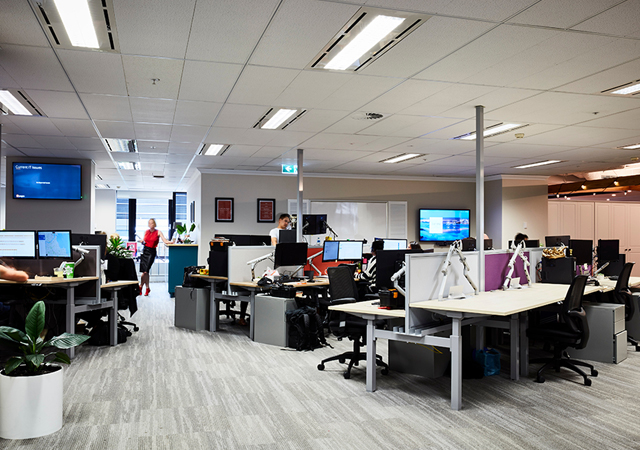



.jpg)

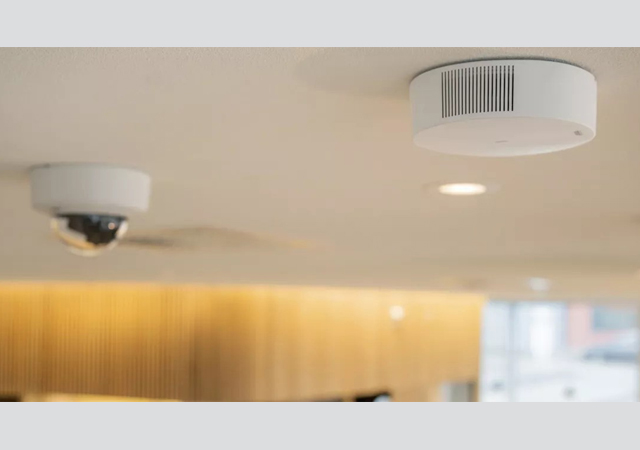







.jpg)




























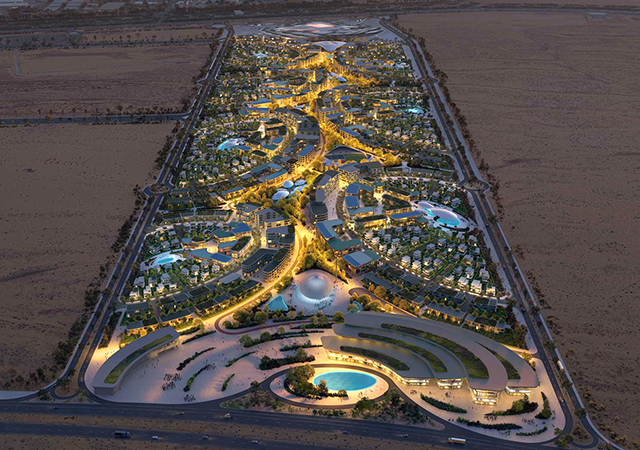







.jpg)


